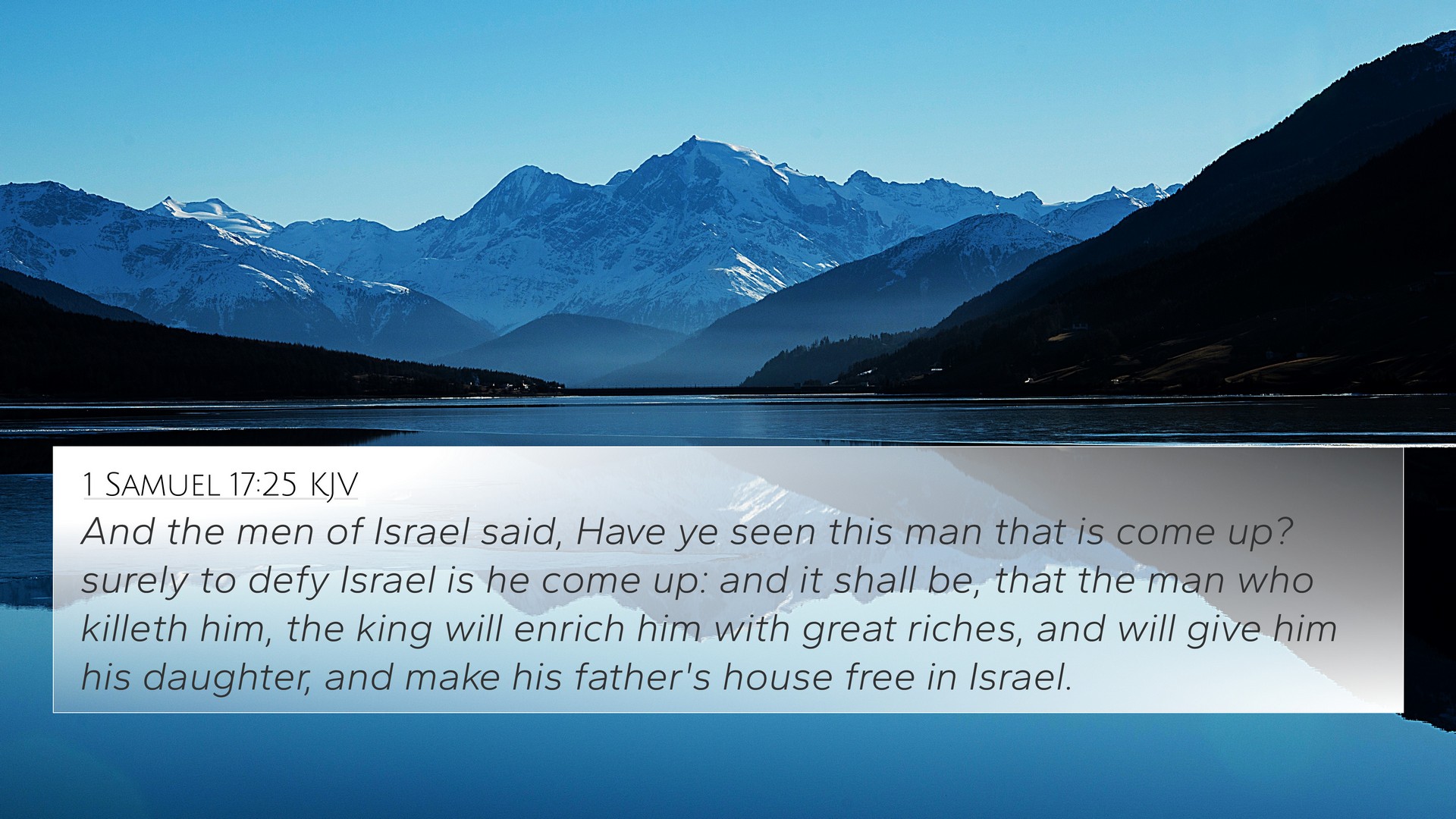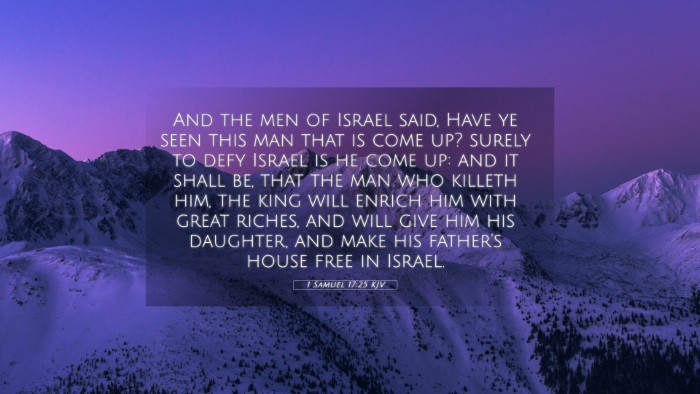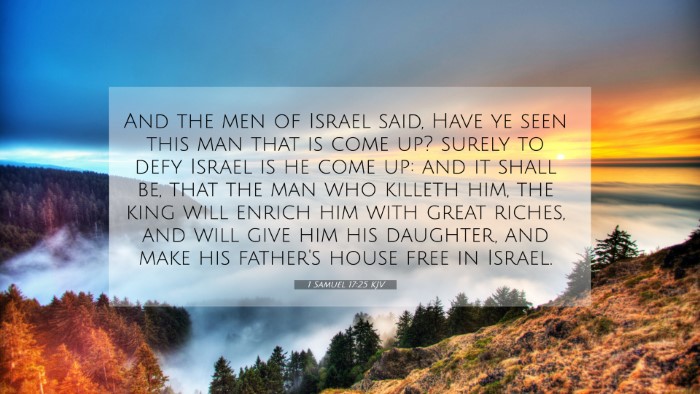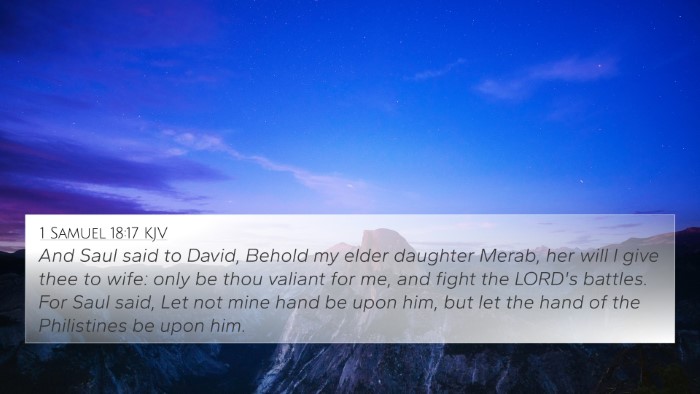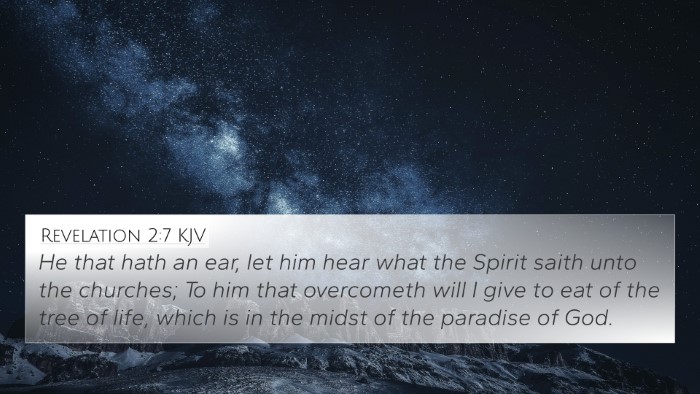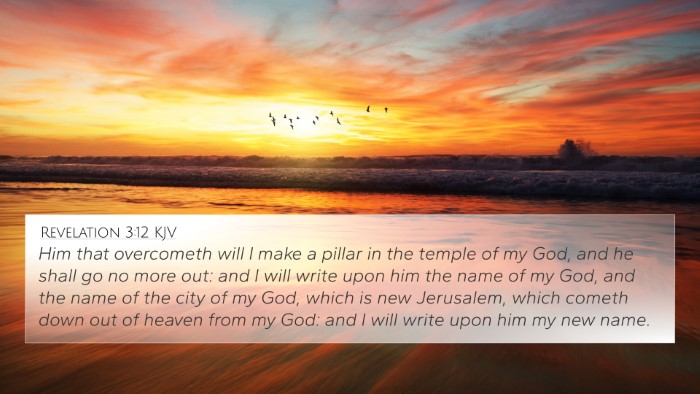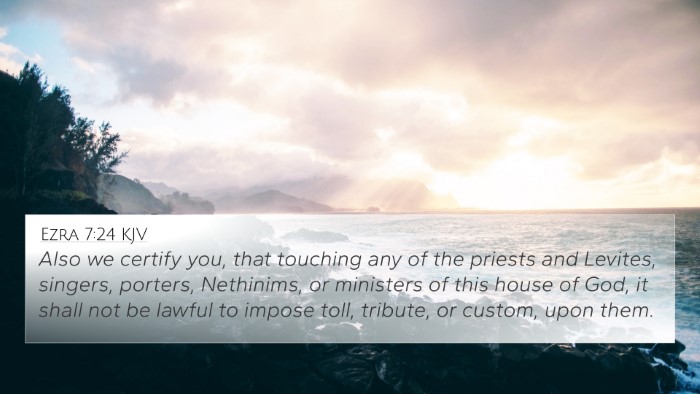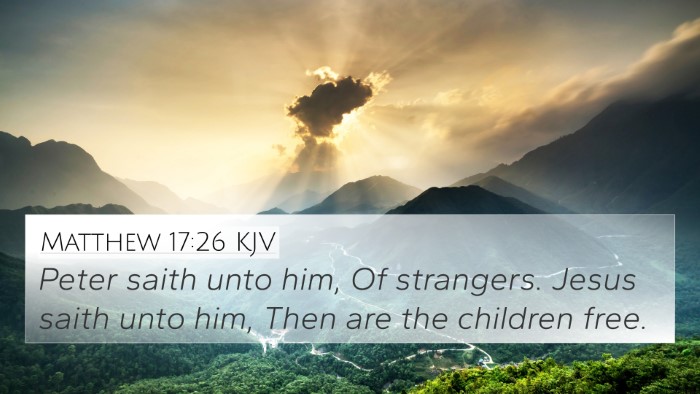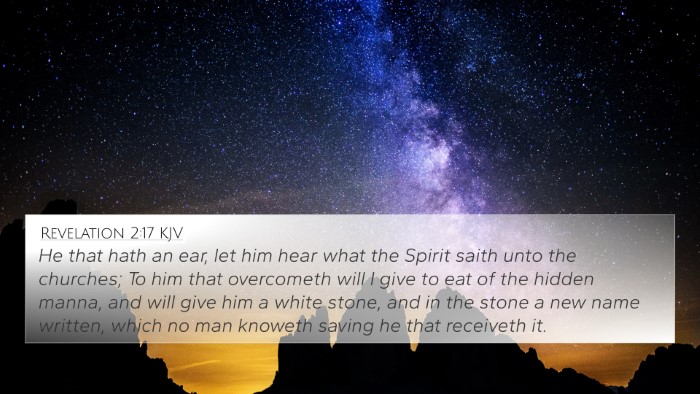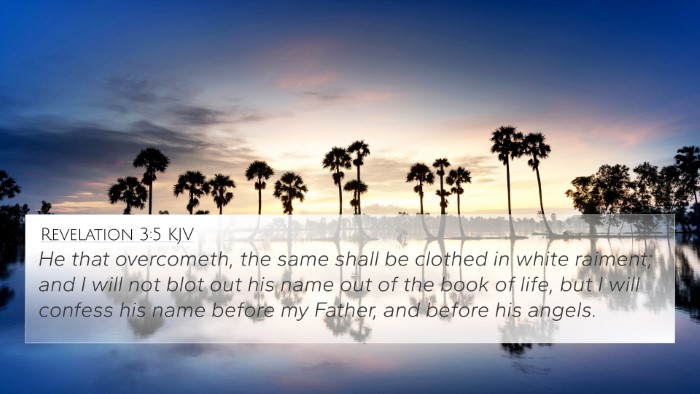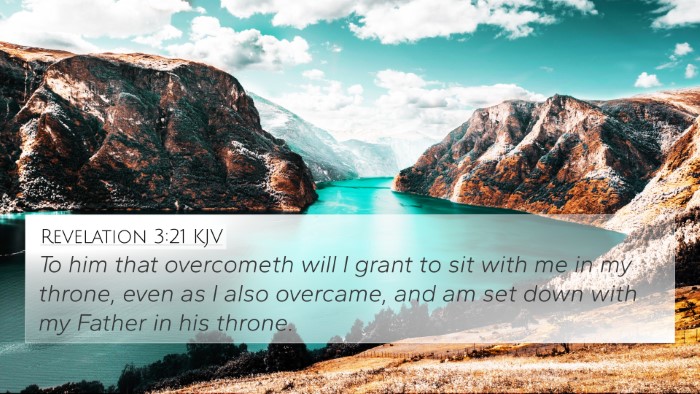Understanding 1 Samuel 17:25
Bible Verse: 1 Samuel 17:25 - "And the men of Israel said, Have you seen this man that is come up? Surely to defy Israel is he come up: and it shall be, that the man who killeth him, the king will enrich him with great riches, and will give him his daughter, and make his father's house free in Israel."
Summary of the Verse
This verse is set against the backdrop of the confrontation between Israel and the Philistines, particularly focusing on Goliath, the fearsome giant who challenges the Israelite army. The Israelite soldiers express their fear and amazement at the boldness of Goliath. They also discuss the rewards that King Saul has promised to anyone who can defeat this giant, highlighting the honor and material gain that would accompany such a victory.
Insights from Public Domain Commentaries
Combining insights from respected commentators such as Matthew Henry, Albert Barnes, and Adam Clarke, we find several layers of understanding regarding this passage:
-
Matthew Henry's Commentary:
Henry emphasizes the demoralizing effect of Goliath's taunts on the Israelite soldiers. His challenge is not just a physical threat but a spiritual one, meant to instill fear and doubt among the people of God. The mention of rewards serves as an incentive, yet it contrasts sharply with the fear that grips the hearts of the soldiers. Henry points out that the human inclination toward fear often overshadows the promises and strength of God.
-
Albert Barnes' Notes:
Barnes notes that the dialogue among the soldiers reveals the desperation of the situation. He highlights how the rewards offered by King Saul are intended to encourage courage among the Israelites. The mention of being made free from taxes and the potential marital alliance to the king’s daughter showcases the high stakes involved and the powerful allure of these rewards amidst daunting intimidation from Goliath.
-
Adam Clarke's Commentary:
Clarke provides a historical context, mentioning that Goliath was a notable champion and his challenge had been issued for a prolonged period. The response of the Israelite men indicates their collective fear and unwillingness to confront what they perceive as an insurmountable obstacle. The reward of rewards signifies the dire need for a hero in Israel, which sets the stage for David’s eventual intervention.
Bible Verse Cross-References
To enrich our understanding of 1 Samuel 17:25, we can explore several related Bible verses:
- 1 Samuel 17:4: Description of Goliath, presenting his intimidating presence.
- 1 Samuel 17:10: Goliath's challenge to Israel, highlighting the spiritual implications of his defiance.
- 1 Samuel 17:36: David’s expression of faith in God, contrasting with the fear exhibited by others.
- Exodus 14:13-14: God's promise of deliverance in moments of fear, reinforcing faith over fear.
- Philippians 4:13: "I can do all things through Christ who strengthens me," offering a New Testament perspective on confronting giants.
- Matthew 10:28: A reminder not to fear those who can kill the body but cannot kill the soul, connecting courage with faith.
- Hebrews 11:32-34: Acknowledges the heroes of faith who conquered nations and giants through divine aid.
- 2 Timothy 1:7: "For God has not given us a spirit of fear, but of power, love, and a sound mind," relevant in the face of intimidation.
- Romans 8:31: "If God be for us, who can be against us?" emphasizing the confidence derived from divine support.
- 1 John 4:4: "Greater is he that is in you, than he that is in the world," highlighting the victory we have over fears through faith.
Thematic Connections and Analysis
1 Samuel 17:25 illustrates key themes of courage, faith, and the human response to fear in the face of overwhelming odds. Below are some thematic connections and insights:
- Thematic Courage vs. Fear: The verse contrasts the fear pervasive among the Israelite soldiers with the upcoming courage displayed by David, setting a narrative of faith triumphing over fear.
- Faith and Divine Intervention: The promise of rewards serves as a motivation, but ultimately the victory will hinge on God's providence rather than human strength.
- Spiritual Warfare: Goliath’s defiance is reflective of larger spiritual battles faced by God's people, accentuating the need for faith-driven champions.
- Divine Reward vs. Earthly Reward: The material incentives mentioned square off against the spiritual blessings obtained through obedience and faithfulness to God.
Conclusion
The verse 1 Samuel 17:25 serves as a pivotal moment in the story of David and Goliath, encapsulating the fear, tension, and the calling for a champion to rise in faith against overwhelming odds. Through the combined insights of classical commentaries, cross-references, and thematic connections, we gain a more profound understanding of this critical biblical narrative. The interplay of fear, the promise of rewards, and the potential for divine victory invites readers to reflect on their spiritual battles and the assurances found in faith.
